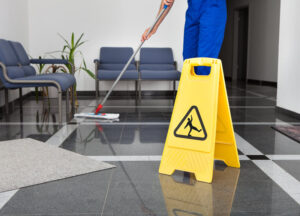Excessive social media use has many of the same effects as substance abuse, says expert
The average American spends nearly 2½ hours per day on social media, and that number more than doubles for teens, studies have shown.
For many people, the reliance on social media can feel much like an addiction — and many experts believe that’s exactly what it is.
“Social media addiction is not yet recognized in our diagnostic manual — however, we have seen a growth in social media use, and research has begun to show some similarities with addiction, just not enough to define a diagnosis formally,” Lindsay Oberleitner, a clinical psychologist and education director at SimplePractice in Detroit, Michigan, told Fox News Digital.
SURGEON GENERAL’S ADVISORY ON SOCIAL MEDIA AND YOUTH MENTAL HEALTH COMES AMID ‘REAL-TIME EXPERIMENT’
SimplePractice is an electronic health records solution that serves more than 178,000 solo and small-group practitioners.
Another commonly used term, “problematic social media use,” does not quite capture the depth of difficulties that individuals are experiencing with social media, Oberleitner said.
“‘Problematic’ can imply risky behaviors, such as illegal behavior on social media, rather than the personal pattern of detrimental use to which social media addiction refers.”
Lindsay Oberleitner is a clinical psychologist and education director at SimplePractice in Michigan. “Social media addiction is not yet recognized in our diagnostic manual — however, we have seen a growth in social media use, and research has begun to show some similarities with addiction,” she told Fox News Digital. (Lindsey Oberleitner/SimplePractice)
One Reddit user, l3moncardboard, recently shared an experience with social media dependency.
“I am insanely addicted to my phone. My screen time is disgusting and I’m ashamed — it’s upward of five hours per day … It creates the worst case of anxiety in my brain and makes me overthink,” the person also wrote.
TEENAGE BINGE-DRINKING: WHY IT’S SO DANGEROUS FOR YOUNG PEOPLE TO OVERINDULGE IN ALCOHOL
“My days are quite literally dictated by if certain people respond to the snap I’ve sent them or not. How can I manage this? It’s absolute insanity and I can’t stand it.”Warning signs of social media addiction
Some of the telltale signs of problematic social media use can mimic the symptoms of behavioral addictions and substance use disorders, but on a smaller scale, said Oberleitner.
One of the biggest red flags is when the excessive use of social media platforms interferes with other daily activities.
The average American spends nearly 2½ hours per day on social media, and that number more than doubles for teens, studies have shown. (iStock)
“The individual might begin to withdraw from in-person events, disengage while at social events or quit participating in activities they used to enjoy,” the doctor said.
“We might also see concerning levels of distress when they can’t use social media.”
TEENS AND SOCIAL MEDIA: AMERICAN PSYCHOLOGICAL ASSOCIATION ISSUES GUIDANCE FOR SAFE USE AND ‘INSTRUCTION’
Someone who is addicted to social media will likely continue to use it despite the harmful effects, Oberleitner said.
“For example, the individual is aware that the time spent on social media interferes with school or work performance, but they do not decrease their time spent,” she said.
“I am insanely addicted to my phone. My screen time is disgusting and I’m ashamed.”
The person might attempt to reduce the time spent on social media — but is likely unsuccessful.
“We may also see that family and friends are upset by the individual’s use of social media, to the point that it causes strain on their relationships,” Oberleitner noted.
Excessive social media use can mimic substance addiction, one clinical psychologist told Fox News Digital. (iStock)
Excessive social media use can also cause impaired school and work performance, feelings of isolation and loneliness, negative self-image, sleep difficulties, disordered eating and increased symptoms of depression and anxiety, the doctor warned.
“Broadly, in addictive disorders, we see a pattern of a loss of control, compulsivity of use, negative consequences on personal and interpersonal functioning, and intense desires for use,” she added.The risk factors
While anyone can develop an unhealthy reliance on social media, it tends to be more prevalent among young people, Oberleitner said.
“Negative impacts from overuse are particularly problematic for youth,” she said. “Brain development continues into our 20s, and the frontal cortex, responsible for planning behavior, is the last area to develop fully.”
Someone who is addicted to social media will likely continue to use it despite the harmful effects, Oberleitner said. (Matt Cardy/Getty Images)
Young people are also less likely to consider the risks of their harmful behaviors — making it harder to stop them, the doctor pointed out.
“Coping strategies, social skills and emotion regulation are all skills we learn and develop in childhood, adolescence and beyond,” she went on.
“Excessive social media use can interfere with the development of each of these areas.”
“Individuals who experience anxiety and loneliness are more prone to problematic social media use.”
As one teen user wrote on Reddit, “I’m quite young and want to enjoy my teenage years. My phone has caused me so much unnecessary negative emotions already, and I’ve just reached a point where it’s completely draining and dictates the way I go about daily life.”
TEEN GIRLS SPEND MORE TIME ON ‘SENSITIVE’ SOCIAL MEDIA CONTENT THAT CAN HARM MENTAL HEALTH, REPORT SAYS
Individuals with high impulsivity are also more likely to display addictive social media behavior, said Oberleitner, as it is harder for them to stop engaging in unhealthy behaviors.
“It has also been observed that individuals who experience anxiety and loneliness are more prone to problematic social media use,” she added.Doctor’s tips for detoxing
When it comes to approaches to stopping the overuse of social media, one size does not fit all, said Oberleitner.
Many people use a combined approach, starting with a “full-stop period” when they don’t use social media at all — and then gradually restarting with moderation.
Some of the telltale signs of problematic social media use can mimic the symptoms of behavioral addictions and substance use disorders, but on a smaller scale, said Oberleitner. (iStock)
“The full-stop approach mimics abstinence-only approaches in substance use,” said Oberleitner. “It is unlikely to be feasible to never return to social media use, so the key is setting the time you want to step away.”
This might be a day, weekend, week or even a month, which gives the person a chance to “break the reinforcing cycle of social media use,” she said.
“A full stop can be as simple as hiding away computers and tablets, and removing phone apps that make social media access easy,” Oberleitner said.
SURGEON GENERAL RELEASES ADVISORY CALLING FOR IMPROVED SOCIAL CONNECTION
After the full-stop period, the person could resume use with “moderation or harm reduction approaches” in place, she said.
“Some examples could be setting a 30-minute time after dinner each day that you look at social media, or only engaging with it on the weekend for a limited time,” said Oberleitner.
“It might also include making plans to reengage with activities you have been missing out on because of social media use.”
One of the biggest red flags is when excessive use of social media platforms interferes with other daily activities, Oberleitner said. (iStock)
This approach is most likely to work when an individual has a network of individuals who will support attempts to cut back, the doctor said.
For some, it may be helpful to make accessing social media harder than usual.
This might mean removing phone apps, not saving passwords on browsers so extra steps are needed to sign in, and putting away tablets and computers.
ADDICTION COMPLICATES PAIN MANAGEMENT, BUT NEW GUIDELINES OFFER HELP FOR ‘COMPLEX PATIENTS’
“Reducing access can involve an active choice to set a time each day devoted to social media while simultaneously committing to not accessing social media at any time outside of that explicit time window,” Oberleitner said.
When treating people with addictions, she often helps them identify triggers for their behavior.
Even those who don’t consider themselves addicted to social media can benefit from reducing their usage and adopting healthier relationships with the technology, noted Oberleitner. (iStock)
“The closer the approximation of the trigger to the behavior we want to change, the harder it is to resist,” she said.
“So regarding social media use, it will be tough to change our behavior if we are sitting on the couch with our tablet next to us.”Real people share detox tips and tricks
One Reddit user, urcrain, offered this tip: “Determine what you are spending most of your time doing on social media. If it’s meme hunting and sharing, try eliminating that. Find alternative ways to get important areas of social media in a less addictive way.”
“Try to find things to do that can keep you entertained and busy during the times that you usually want to pick up your phone.”
ZenithArmageddon offered more tips: “Try to find things to do that can keep you entertained and busy during the times that you usually want to pick up your phone. Busy hands are great to keep the phone away.”
This person also suggested, ,”If you find yourself returning too much, then try to reduce the amount of stimulation you get from your social media. Avoid ‘for you’ recommendations such as the explore tab on Instagram, and mute the stories and posts on friends who you don’t really keep up with. It’s OK to still look at what your friends are doing, but try to catch yourself before you go down the ‘explore’ rabbit hole.”
“Reducing access can involve an active choice to set a time each day devoted to social media while simultaneously committing to not accessing social media at any time outside of that time window,” Oberleitner said. (iStock)
Another user, NavyRedRose, suggested more approaches: “Some phones can have you set screen time reminders and downtime. For example, I’ve added a 45-minute limitation per day to certain social media apps. Once I hit the limit, it’s no more of that app for the rest of the day.”
DEMENTIA PATIENTS WHO TAKE OPIOIDS FACE ‘WORRISOME’ DEATH RISK, NEW STUDY FINDS
This person also wrote, “I noticed that using my local library’s app and borrowing audiobooks has helped me put my phone down more as well. I can listen to an audio book or podcast as a distraction, but I can also do something else while I’m listening that keeps me present in my day-to-day life.”
Other suggestions included adopting a “digital Sabbath” one day per week, only using social media on alternating days, practicing mindfulness exercises, and focusing only on quality content instead of “mindlessly scrolling.”
CLICK HERE TO SIGN UP FOR OUR HEALTH NEWSLETTER
Even those who don’t consider themselves addicted to social media can benefit from reducing their usage and adopting healthier relationships with the technology, noted Oberleitner.
The doctor also emphasized the “urgent need” for continued research and development in this area, as well as a greater integration of addiction-related assessment and treatment across health care. Weighing benefits and risks
Despite its risks, social media use is not all bad, Oberleitner said — after all, there was a reason for its rapid growth.
“Negative impacts from overuse are particularly problematic for youth,” said Oberleitner. (iStock)
“Social media can reduce stigma and isolation for individuals by finding networks of individuals with similar experiences and interests — connections that might not be possible within someone’s immediate community,” she told Fox News Digital.
It can also allow connection during isolation, such as illness, and enable connections through distance and time, she said.
CLICK HERE TO GET THE FOX NEWS APP
“Suppose we can continue to support efforts to help people decipher helpful from non-helpful, and informed from misinformation, when viewing social media,” Oberleitner said.
“In that case, it can also be an excellent source of access to information.”
Melissa Rudy is health editor and a member of the lifestyle team at Fox News Digital.
02
Security software helps cut down response times in school emergencies
As students head back to class for a new school year, keeping children safe remains a top concern.
Last year, 40 people were killed and 100 others injured in school shootings across the United States, but an innovative program that simplifies safety is now being used in nearly 2,000 schools across the country to help keep kids safe.
When an emergency happens in a school, response time is critical, so Ivo Allen created 911Inform, a security software designed to connect on-site staff, dispatchers and first responders simultaneously for anything from a fight to a health issue to gun violence.
“We basically connect into the phones in the building, the camera system, the HVAC, all the technology that’s in the building,” Allen said, noting schools that have implemented the technology have seen a 60% reduction in response time.
The instant access can be life-saving. 911Inform works by notifying school staff before the phone even rings at 911 dispatch.
In a demonstration of the technology, the system immediately picked up a 911 call made by Allen from inside a school and instantly showed where the call came from. The system allowed him to see the location of the classroom, the best route from the nearest door, and it can show live surveillance cameras.
“With one touch I can lock down the building,” Allen said.
Police departments receive the system for free when a school district signs up. Depending on the size of the school, the initial investment can be up to $25,000 plus $5,000 a year for maintenance.
School resource officer Kris Sandman brought the technology to Morris County Vocational School in New Jersey after a chaotic lockdown in 2019. As students arrived for school, he received a credible shooter threat and was unable to notify staff who weren’t yet on campus.
He says he spends every day thinking about how to keep students safe.More Meg Oliver
Meg Oliver is a correspondent for CBS News based in New York City.
03
Gen Z is being ‘home-blocked’ from having sex
The cost-of-living crisis isn’t just murdering their financial savings, it’s killing Generation Z’s sex lives.
According to Bumble’s 2023 Sex Index, 65 percent of single Gen Zers have reported their sex lives are impacted by their living situations.
It is a phenomenon known as being “home-blocked,” where your living situation impacts, or perhaps is even ruining, your sex life.
Your early 20s are meant to be all about sexual experimentation — but how on Earth are you meant to do that when you can hear your parents watching the latest Nicole Kidman HBO series in the next room?
A 2022 study found that more Gen Zers live at home with their parents than any previous generation in history, with 54% of young people not leaving the nest. Gen Z is being “home-blocked” from having sex.Getty Images/iStockphoto
Gen Z is being “home-blocked” from having sex.Getty Images/iStockphoto The younger generation might be saving on rent, but the move is costing them their sex lives for one slightly “embarrassing” reason.Getty Images
The younger generation might be saving on rent, but the move is costing them their sex lives for one slightly “embarrassing” reason.Getty Images According to Bumble’s 2023 Sex Index, 65 percent of single Gen Zers have reported their sex lives are impacted by their living situations.Getty Images
According to Bumble’s 2023 Sex Index, 65 percent of single Gen Zers have reported their sex lives are impacted by their living situations.Getty Images
The economy seems to be driving these record-high numbers, with inflation rising 3.3% in July, according to the Fed’s preferred index.
The impact is pretty clear because Generation Z are now more likely to stay at home longer and more likely to go crawling back to their parents’ house. “I can’t remember the last time I had sex at home,” one Gen Zer said.Getty Images
“I can’t remember the last time I had sex at home,” one Gen Zer said.Getty Images
The younger generation might be saving on rent, but the move is costing them their sex lives for one slightly “embarrassing” reason.
It’s far less living like Samantha Jones from “Sex and the City” and far more trying to have silent sex.
Hannah,* 22, lives in Sydney, Australia, works part-time in retail and is in college full-time — and yes, she’s still living at home with her parents. It’s a phenomenon known as being “home-blocked,” where your living situation impacts, or perhaps is even ruining, your sex life.Getty Images
It’s a phenomenon known as being “home-blocked,” where your living situation impacts, or perhaps is even ruining, your sex life.Getty Images
She moved out for six months in search of freedom, but ultimately moved back in with her parents because she wanted to “save money” and working more was impacting her schoolwork and social life.
“I wanted to save money and also found that working more hours per week had an impact on my studies,” she told news.com.au.
The upside is that she can now afford to work less and focus on her social and university life, but the downside is that it isn’t easy to get laid. “You have to sneak around and make sure you’re really quiet and you’re always worried about someone hearing or walking in,” said one 22-year-old who lives with her parents.Getty Images
“You have to sneak around and make sure you’re really quiet and you’re always worried about someone hearing or walking in,” said one 22-year-old who lives with her parents.Getty Images
Sure, she has time to date, but where on Earth is she going to seal the deal? Instead of finding her sex life exciting, she finds sex a “stressful” experience, but only because her sex life is highly hindered by still living with her parents.
“It’s very difficult to find time to be intimate when you have your whole family home every night,” she said.
“You have to sneak around and make sure you’re really quiet and you’re always worried about someone hearing or walking in.”
In Hannah’s opinion, being home-blocked is just part of living at home. Sure, you can wait until everyone leaves the house and try to get some alone time with a lover … but parents have a habit of coming back.
“My ex and I were watching a movie in the living room and my parents decided to join us to watch the movie. He had to go home at the end of the movie,” she shared.
So no sex there.
Now that she’s single, even attempting to have a sex life is complicated.
You aren’t going to want to introduce your family to some guy you are casually seeing or a one-night stand. You aren’t going to want to introduce your family to some guy you are casually seeing or a one-night stand.Getty Images/iStockphoto
You aren’t going to want to introduce your family to some guy you are casually seeing or a one-night stand.Getty Images/iStockphoto
Instead she has to wait for moments where she is on her own. For instance, she managed to have sex “six weeks ago” but only because she was away in Europe on vacation.
Despite the sexual perils of living at home with Mom and Dad, it isn’t a situation she sees changing soon.
She only plans to move out when she secures a “stable” job and brings home at least $42,000.
Her story isn’t uncommon. Jordan,* 22, lives in Sydney and works full-time, pulling in $42,000, but still lives at home because of how expensive everything is. One Gen Zer who lives at home said she managed to have sex “six weeks ago” but only because she was away in Europe on vacation.Getty Images/iStockphoto
One Gen Zer who lives at home said she managed to have sex “six weeks ago” but only because she was away in Europe on vacation.Getty Images/iStockphoto
“Finances are the main reason I’m still living at home. I would love to move out close to where my parents live and where I’ve grown up, but it’s becoming nearly impossible in Sydney,” he told news.com.au.
Jordan explains that, while he thinks staying at home is best for his financial future, it isn’t helping his sex life.
He feels like living at home means he can’t “experience” a normal part of life without being “judged” by his ever-present parents.
In an attempt to maintain a sex life, he keeps things away from home and instead tries to find hook-ups who have their own places.
Romantic, right?
“Typically, I go to their place. I can’t remember the last time I had sex at home,” he admitted.
Jordan has learned the hard way that anything can happen when you invite a girl back to your place. By his place, he means his parents’ place.
“One time I had someone over, we were in my bedroom and things started getting spicy until my parents came home with a bunch of family friends from a party — about 20 of them in total,” he said.
“The girl hid in the closet and stayed in my room for 30 minutes while I had to go out and say hello to everyone. I managed to go back and sneak her out through the back door and around the side of my house.
“I ended up walking up the street and calling her an Uber home. I haven’t seen her since.”
Gen Z might be setting up their financial futures by staying at home, but it has led to the downfall of their sex lives.
*Names have been changed for privacy reasons.










Post Comment